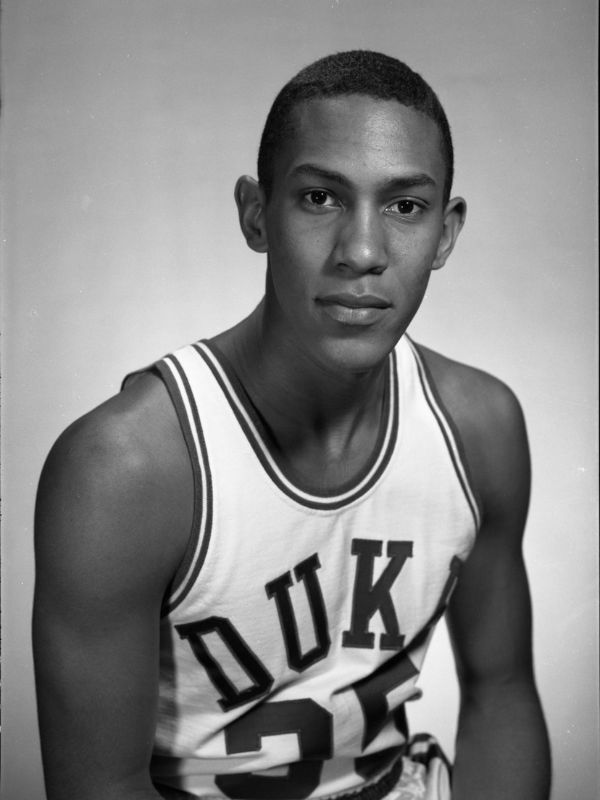He Carried His Father’s Dream: The Untold Heartbreak and Rise of C.B. Claiborne at Duke
Durham, North Carolina – In the heart of the segregated South, a young man named Claudius B. Claiborne made history not only with his athletic ability, but with quiet courage that would forever shape Duke University. He was the first African American to play men’s basketball for the Blue Devils—a legacy rooted in struggle, ambition, and the dream of a father who never lived to see it fulfilled.
Born in segregated Danville, Virginia, in 1947, C.B. Claiborne grew up in an America where opportunity was a fragile promise for Black families. His father, deeply committed to education and equality, urged young Claiborne to aim higher, to dream beyond the racial boundaries that defined much of the American South. That dream came true when Claiborne was accepted into Duke University in 1965, just three years after the school integrated.
Claiborne’s journey wasn’t just historic—it was lonely. “There was no blueprint for what I was trying to do,” Claiborne once said. “I just knew I couldn’t quit.”
As a student, Claiborne was one of the very few African Americans on campus. As a basketball player, he was even more of an anomaly. He walked on to Duke’s powerhouse basketball team in 1966, coached by the legendary Vic Bubas. Though he wasn’t recruited and received little playing time, Claiborne’s presence on the team marked a seismic shift in Duke’s history—a school that, until recently, had been off-limits to Black athletes.
But that symbolic first came at a personal cost. Claiborne faced subtle and overt racism, both on and off the court. Teammates often didn’t speak to him. Fans rarely cheered for him. Yet he persisted—driven not by fame or stats, but by a silent vow to his father, who had passed away before ever witnessing his son wear the Duke blue.
“He would always tell me: ‘Don’t just be good, be excellent. Because you’ll have to be twice as good just to be seen as equal,’” Claiborne recounted in a 2022 documentary.
That excellence showed not only in his perseverance as an athlete but in his academic commitment. Claiborne earned his engineering degree from Duke and went on to earn a Ph.D. in industrial engineering, eventually becoming a professor and mentor to generations of students.
While Claiborne’s story never drew the national attention of Jackie Robinson’s, his trailblazing role at Duke paved the way for athletes like Grant Hill, Kyrie Irving, and Zion Williamson. His presence forced a slow and often uncomfortable cultural reckoning at Duke—one that expanded access and broadened the definition of what it meant to wear the Blue Devil uniform.
In 2023, Duke honored Claiborne during a sold-out home game at Cameron Indoor Stadium. As he stepped onto the court, now 76 years old, he received a long-overdue standing ovation from students, alumni, and fans—many of whom were just learning the full extent of his sacrifice.
Today, Claiborne’s legacy is not just about being the “first.” It’s about grace in the face of exclusion. About honoring a father’s vision. About standing firm when the stands are quiet.
As the game of basketball continues to evolve, and as conversations about racial equity in sports deepen, the story of C.B. Claiborne offers more than history—it offers inspiration.
“He carried his father’s dream,” said Duke President Vincent Price. “And in doing so, he gave Duke the courage to grow.”





























